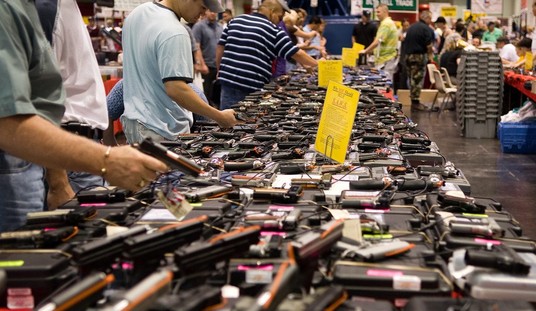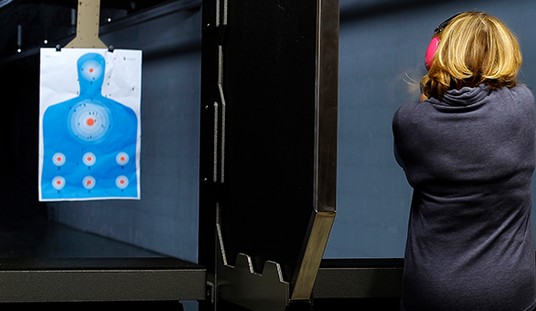Illinois and Chicago in particular always play by their own set of rules. And it is no different when it comes to the Second Amendment and with that, the Constitution. In a press conference on July 2, 2013 loaded with pomp and circumstance, Illinois Governor Pat Quinn decided to weigh in on the proposed concealed carry bill five days before it is to be voted on adding “common sense” restrictions.
Illinois’ longstanding blanket ban on concealed carry was deemed unconstitutional by the United States Court of Appeals for the Seventh Circuit on December 11, 2012. Lawmakers were given 180 days to pen a new law that didn’t defy the Constitution and deprive Americans of their rights. Attorney General Lisa Madigan filed for two separate extensions which pushes the vote out until the end of July. As a result, we remain defenseless here, without a [legal] way to protect ourselves, our families or our homes.
Given that the mayor of Chicago, Obama’s former chief of staff, Rahm Emanuel, is staunchly against concealed carry it will be interesting to see what unfolds. Garry McCarthy, the embattled Chicago Police Department superintendent, is also opposed to allowing it and has gone so far to say that police officers will shoot “licensed civilians with guns” as a result of the new legislation. Fear-mongering and scare tactics designed to push political agendas to an uneducated media and public are not uncommon to Chicago.
Ironically, the gun debate wages on in downstate Springfield while Chicago is as violent as ever. Over the fourth of July holiday alone, 9 people were killed by gun violence and 36 were wounded including two young boys, 5 and 7. In addition, several “wilding” (euphemism for mob violence) incidents occurred in the more affluent parts of town including the posh downtown areas such as Michigan Avenue. During a wilding, unsuspecting citizens are basically “sitting ducks” as large groups of minority teens swarm and inflict physical harm and/or commit robbery. Deductive reasoning tells us that the outcome and/or frequency of such incidents would be much lower or neutralized much quicker and more safely if citizens were allowed to protect themselves. Incidents like this happen in mere moments and the police are typically minutes away.
Judge Richard Posner ruled the Illinois ban on carriage as unconstitutional and stated in the ruling that, “One doesn’t have to be a historian to realize that a right to keep and bear arms for personal self-defense in the eighteenth century could not rationally have been limited to the home. . . . Twenty-first century Illinois has no hostile Indians. But a Chicagoan is a good deal more likely to be attacked on a sidewalk than in his apartment on the 35th floor.” Those are wise words given the current state of Chicago gun violence. The bad guys are seeking victims, not armed opponents, and they will continue to prey on Illinois residents until lawmakers put in place concealed carry legislation like the rest of nation.
Governor Quinn’s amendatory veto has added restrictions that are some of the strictest in the nation. Gun rights advocates are confident that the additional restrictions will not make it into the bill. The original bill, HB 183, creates the Firearm Concealed Carry Act which allows residents and non-residents who meet specified qualifications to apply for a license to carry a concealed firearm in Illinois. The license is valid for 5 years; the license fee is $150 for a resident and $300 for a non-resident. Any law enforcement agency can object to a license applicant based upon a reasonable suspicion that the applicant is a danger to himself or herself or others, or a threat to public safety. The Department of State Police can object to a license applicant with 5 or more arrests for any reason or 3 or more gang-related arrests within the 7 years preceding the date of application. Applicants also need 16 hours of training. Governor Quinn is mandating that the Firearm Concealed Carry Act:
• Limits individuals to carrying a single handgun with a single magazine and no more than ten rounds of ammunition.
• Changes the definition of “concealed” to specify a handgun must be completely concealed as opposed to concealed or mostly concealed.
• Bans carry in any place that serves alcohol – except private clubs and residences – and therefore nullifying the “restaurant carry” provisions in the bill.
• Inverts the “no carry” posting, meaning that carry will only be permissible
-
in places that post it is OK to carry a concealed firearm.
• Allows employers to ban firearms on their property and negate the safe harbor provisions.
• Removes the ability of individuals to get out of their vehicle and store their handguns safely in the trunk of their vehicle.
So come August, will Illinois residents be allowed to carry concealed?
Follow me for updates on the last state in the nation to allow for concealed carry, tactical training tips and gear/gun reviews.
UPDATE: Governor Quinn’s last ditch efforts to severely limit concealed carry in Illinois were all for naught. With the clock ticking, lawmakers had no choice but to override Quinn’s amendatory veto – else – Illinois would have had virtually unregulated concealed carry. Ironically, the original bill was written over a month ago, so Quinn did us a favor by waiting until just days before the deadline to chime in. His press tour this week where he predicted a “showdown” on gun control was all for show and for those that are not educated on the matter.
The law as approved by the Legislature permits anyone with a Firearm Owner’s Identification card who has passed a background check and undergone gun-safety training of 16 hours — longest of any state — to obtain a concealed-carry permit for $150. The Illinois State Police would have six months to set up a system to start accepting applications. Spokeswoman Monique Bond said police expect 300,000 applications in the first year.
The concealed carry bill is HB183. The Cullerton bill is HB1453 available online at: http://www.ilga.gov








Join the conversation as a VIP Member